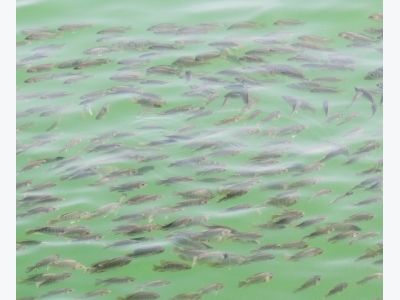Key Facts to Know About ASCs Standards for Tilapia

Regal Springs is certified for their socially responsible work around the globe by numerous councils, including the Aquaculture Stewardship Council (ASC), which the WWF helped found in 2010. Since then, it has been rewarding companies for their ethical work in aquaculture. This recognition offers awarded companies a seal of approval, stating that they follow the outlined principles for aquaculture.
Here is a quick overview of the principles for the ASC and how Regal Springs has acknowledged and demonstrated their understanding of these important practices.
1. Obey the Law and Comply with all National and Local Regulations
The first principle is that the operations are, of course, legal. The company must be able to provide documents that are in compliance with tax laws, labor laws, permits concerning water quality and national/regional authorities on land use.

2. Manage the Farm Site to Conserve Natural Habitat and Local Biodiversity
If built on an improper site, Tilapia farms can disrupt the structure of native fish populations, enhance eutrophication in the receiving waters and cause the loss of sensitive habitat. For this reason, the ASC needs confirmation that the facility is built with environmental concerns in mind, including keeping the habitat viable and the waters clean. Regal Springs tests their water regularly to keep it free from impurities.

3. Conserve Water Resources
Aquaculture relies on water, so the ASC asks that facilities are conscious of conserving resources while farming. They require farms to make minimal changes to the nutrients in the water and the supply altogether to keep the environment as natural as possible.

4. Conserve Species Diversity and Wildlife Populations
The ASC requires farmers to have a net between their Tilapia and the other wildlife in the water. This keeps the Tilapia safe from predators and able to grow into strong, healthy fish. Because of principles such as this, Regal Springs can say with absolutely certainty that their fish eat a healthy, primarily vegetable-based feed and are free from mercury.

5. Use Resources Responsibly
Energy consumption and waste must be minimal to earn a stamp of approval from the ASC. As Regal Springs feeds their Tilapia with a primarily vegetable-based feed, this helps not only the fish eating it, but it also helps eliminate a need to harvest other fish just for feed. Regal Springs also turns the waste from their Tilapia into feed for other animals, keeping in line with their zero waste policy.

6. Manage Fish Health and Welfare in Environmentally Responsible Manner
It's important not only for the health of the fish but for the success of the company to raise Tilapia in healthy conditions. Fish living in stress are more likely to pass on diseases. Along with this unhealthy conditions can have detrimental effects on the environment. The ASC requires farmers to raise their fish in healthy environments without using antibiotics, hormones or chemicals—and Regal Springs does just that.

7. Be Socially Responsible
Finally, the ASC has no tolerance for workplaces that discriminate, use child labor, promote abuse, don't compensate their employees for working over time or violate health and safety codes. This is arguably one of the most important principles, as aquaculture is a labor-intensive industry, especially in regions that rely on seafood farming to flourish. Regal Springs operates with extra attention to the infrastructure, culture and environment of their workers.
When companies like Regal Springs work in compliance with principles such as these ones, they help work towards conserving wildlife, habitats and water—and shape a greener earth for future generations to come.

Photo credit: Michael MK Khor
Related news
Tools

Phối trộn thức ăn chăn nuôi

Pha dung dịch thủy canh

Định mức cho tôm ăn

Phối trộn phân bón NPK

Xác định tỷ lệ tôm sống

Chuyển đổi đơn vị phân bón

Xác định công suất sục khí

Chuyển đổi đơn vị tôm

Tính diện tích nhà kính

Tính thể tích ao




 Fact or Fiction? 6 Things You Thought You…
Fact or Fiction? 6 Things You Thought You…  4 Articles that Tell the Truth About Tilapia
4 Articles that Tell the Truth About Tilapia